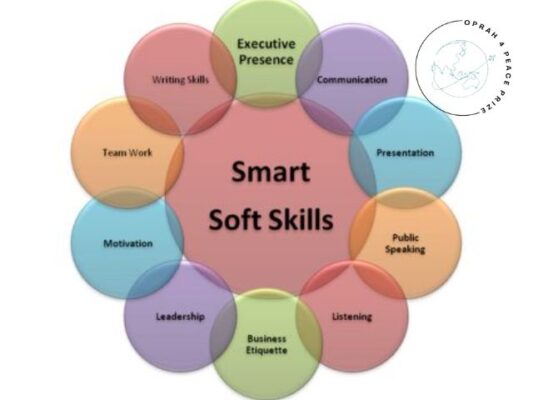In the dynamic world of e-commerce, mastering essential skills is the key to unlocking success and staying ahead of the competition. Whether you’re a seasoned entrepreneur or just starting your online business journey, understanding and honing these critical skills are paramount. From navigating digital marketing strategies to cultivating customer relationships and leveraging data insights, each skill plays a pivotal role in shaping the trajectory of your e-commerce venture. Join me as we explore the six fundamental skills that will empower you to thrive and excel in the ever-evolving landscape of online commerce.
Contents
6 E-commerce Skills to Success For You
1. Soft Skills
As an e-commerce entrepreneur, mastering soft skills is essential for navigating the complexities of online retail. Initially, when you’re operating solo, skills like effective communication, adaptability, and networking are paramount. These skills lay the foundation for building strong customer relationships and ensuring smooth business operations. As your business grows and you hire staff, soft skills become even more critical. In the absence of traditional in-store interactions, soft skills like empathy, patience, and clear communication are vital for delivering exceptional customer service in the digital realm. Moreover, possessing leadership qualities and a continuous learning mindset are essential for fostering a positive work environment and driving team success. Ultimately, strong soft skills empower you to connect with customers, build brand loyalty, and drive business growth in the competitive e-commerce landscape.

2. Technology
In today’s digital age, leveraging technology is crucial for streamlining e-commerce operations and staying ahead of the curve. With a myriad of e-commerce technologies available, understanding and harnessing the right tools can significantly enhance business efficiency and scalability. From omnichannel retail management systems to video conferencing platforms, investing in the right technology stack can centralize operations, facilitate team collaboration, and improve customer experiences. Additionally, utilizing customer relationship management (CRM) platforms, human resources software, and point-of-sale (POS) technology can streamline processes and drive sales. Whether it’s choosing the right e-commerce platform or implementing cloud-based file sharing solutions, embracing technology empowers e-commerce entrepreneurs to optimize business processes, differentiate their brand, and drive sustainable growth.

3. Content
In the realm of e-commerce, content serves as the cornerstone of brand communication and marketing efforts. Compelling content, ranging from product descriptions to blog posts, plays a pivotal role in engaging customers and driving conversions. Effective content creation requires impeccable writing skills, deep product knowledge, and a keen understanding of target audience preferences. By crafting engaging, SEO-friendly content, e-commerce entrepreneurs can establish authority, foster brand loyalty, and attract new customers. Moreover, maintaining consistency, clarity, and authenticity in content creation is essential for building trust and credibility with the audience. As such, prioritizing high-quality content creation is paramount for e-commerce success in today’s competitive landscape.

4. SEO
Search engine optimization (SEO) is a fundamental skill for e-commerce entrepreneurs seeking to enhance online visibility and drive organic traffic to their websites. By optimizing website content and structure according to SEO best practices, businesses can improve search engine rankings and increase their chances of being discovered by potential customers. Effective keyword research, content optimization, and link-building strategies are essential components of a successful SEO strategy. Moreover, staying updated on search engine algorithms and trends is crucial for adapting SEO tactics and maintaining competitive advantage. While mastering SEO requires time and effort, the long-term benefits in terms of increased website traffic and sales make it a worthwhile investment for e-commerce businesses.

5. Marketing & Advertising
Marketing and advertising are essential skills for e-commerce entrepreneurs looking to promote their brand, attract customers, and drive sales. By implementing strategic marketing campaigns across various channels, businesses can effectively reach their target audience and generate interest in their products or services. Whether it’s content marketing, social media advertising, or influencer partnerships, choosing the right marketing channels and messaging is crucial for maximizing ROI and achieving business objectives. Additionally, leveraging data-driven insights and analytics tools can help optimize marketing efforts, track campaign performance, and identify areas for improvement. By continuously refining marketing strategies based on data and feedback, e-commerce entrepreneurs can build brand awareness, drive customer engagement, and ultimately, drive business growth.

6. Graphic Design
Creativity plays a pivotal role in e-commerce, where the ability to craft compelling marketing materials and design visually appealing storefronts is essential for standing out in a crowded marketplace. In this comprehensive package, you’ll dive deep into the Adobe Creative Cloud, gaining proficiency in various tools to elevate your marketing efforts, enhance your web design, and unlock new possibilities for your online business.

Conclusion
Mastering the six essential e-commerce skills discussed in this guide is paramount for achieving success in the competitive online marketplace. From soft skills like effective communication and leadership to technical skills such as technology proficiency and SEO expertise, each skill plays a crucial role in driving business growth and fostering customer satisfaction. By developing a comprehensive understanding of these skills, e-commerce entrepreneurs can effectively navigate challenges, capitalize on opportunities, and differentiate their brands from competitors. Moreover, continuous learning and adaptation are essential in the rapidly evolving e-commerce landscape, ensuring that businesses remain agile and responsive to changing market dynamics. Ultimately, by honing these fundamental skills, entrepreneurs can build thriving e-commerce ventures that deliver exceptional value to customers while achieving sustainable long-term success.
Related Post
How to Design a Business Card Quality
Design a Logo Creative Step-By-Step

